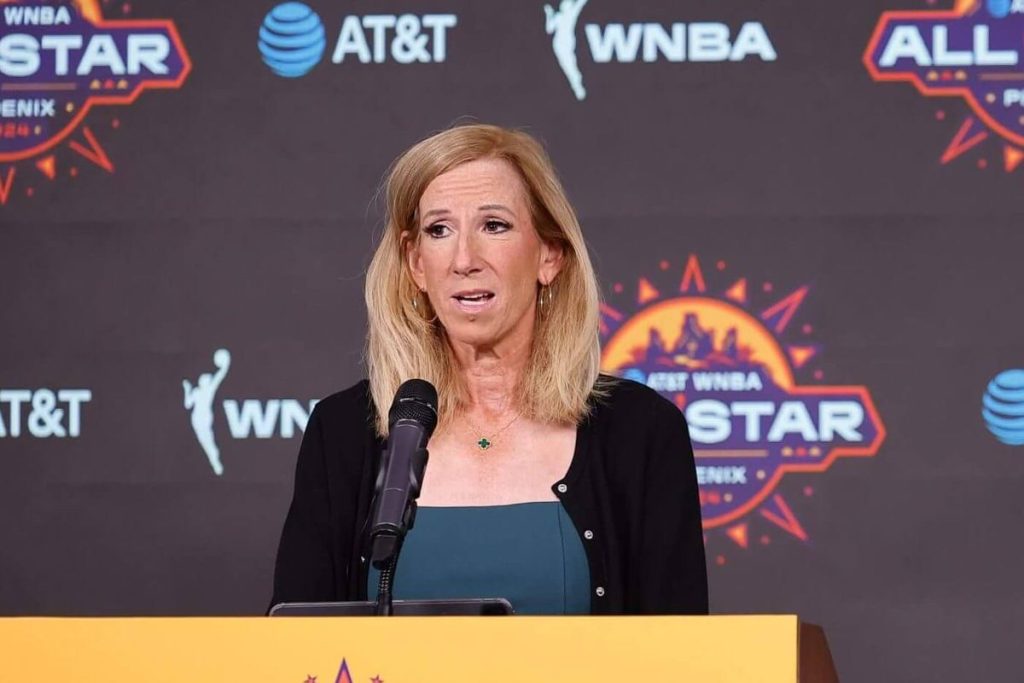Indiana Fever athlete Caitlin Clark recently called for the removal of a fan from a WNBA playoff game due to abusive behaviour, raising debate around the league’s handling of harassment incidents. Clark’s swift complaint resolution contrasts with the lack of response Black WNBA players have faced amid racist abuse on social media. This disparity is adding further pressure to WNBA commissioner Cathy Engelbert’s leadership, already deemed controversial due to comments seemingly endorsing racism as a beneficial tool for business growth.
Engelbert’s response to increased social media vitriol surrounding a rivalry between Clark and fellow player Angel Reese was seen as inadequate by the players union and other members. Despite later clarifying her statements and messaging all league players to pledge engagement with the issue, many question her capability to address racial abuse matters effectively. This incompetency is further evidenced by her failure to properly deal with the influx of aggressive fans brought into the league by popular players Clark and Reese.
Verbal and physical harassment against Black WNBA stars from both fans and social media have been highlighted by other athletes such as Connecticut wing DiJonai Carrington, contributing to growing discontent and a calls for a uniform harassment policy. It seems the WNBA’s attempts at maintaining an inclusive and tolerant image may be marred by its failure to adequately protect its players from racist abuse.
Smith disclosed that Carrington had been followed and received death threats, and Reese received similar treatment after an NCAA championship game. Moreover, Carrington reported receiving derogatory comments and racist slurs, while fans have been seen sporting propagandistic attire at games. Brittney Griner, Phoenix Mercury centre, emphasized all players’ right to perform in a safe environment, indicating the league’s problematic management of racist incidents.
Clark decried the ongoing racist and hateful comments aimed at players, stating that such individuals were not true fans but trolls. Clarke’s stance, although positive, has been criticized as overly simplistic and dismissive, as it fails to acknowledge the depth of the racism problem.
To address these escalating issues, the WNBA needs to develop mechanisms to manage and prevent hate speech and aggression within the fandom. This could be, for instance, ensuring strict rules on what can be brought into arenas and cross-checking potentially harmful social media accounts with ticket-holder information. For true progress, Engelbert must hire a person with the expertise to navigate the intersection of race, culture, sexuality, and misogyny, reinforcing the importance and value of all players in the league, irrespective of race.


